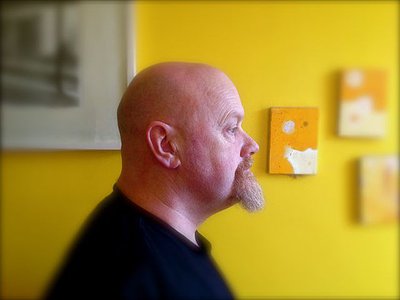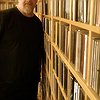When did you start writing about music - and what or who were your early passions and influences?
The first piece of music I remember writing about was Beethoven’s 9th symphony for a school project. It was rubbish of course but it got me thinking of music as something you might be able to talk about, or more correctly in my case, express the way it made you feel.
That exposure to classical music via my parents' small collection of popular classics - Holst, Mozart, Beethoven, Rimsky-Korsakov, etc - was pretty important to me I think. I have vivid memories watching the last night of the Proms as a small child. I spent a lot of time listening to the various sections in the orchestra as opposed to hearing the thing as a whole - this was actually very helpful to me in later years, being able to focus in on a particular instrument or follow the progress of a particular theme. It brought me much closer to the music, or at least that’s what it felt like.
My parents also bought one of those weekly build-a-library series called The Great Composers which, alongside a 12-page booklet had a single ten-inch record. Now I think about it, I used to spend a lot of time on my own as a kid reading and listening to those. I can’t say I really understood much of anything I read but it did instil in me a sense that you read about music as well as simply listening to it.
I was raised in a shipyard town and at night, when I was falling asleep, there would be these enormous, cavernous reverberations of rivets and large metal plates banging into each other. I know it sounds strange but it was oddly comforting. Those sounds were wreathed in an echo, bouncing off the rooftops. There was something mysterious and beguiling about it and whenever I hear reverb on an album I nearly always get a sense of those nights and a chill, wintry air.
Growing up in the 60s, the pop culture of the day had a huge impact on me of course, chiefly in the form of The Beatles, who seemed to be everywhere at the time.
My older sister Lesley, was a huge Beatles fan as were most teenage girls in the early 60s. A few short years on though she was getting into blues and what was then called the underground scene, Ravi Shankar and so on. Through her I got exposed to the likes of John Mayall, Cream, Free, Deep Purple, Led Zeppelin, Mountain and so on. She was a huge influence on my listening and understanding of music. When she went off hitch-hiking around Europe, I would pretend that her album collection was mine and in an instant I had the coolest record collection of anyone at school.
Around the same time in the early 70s I was devouring the weekly music papers such as Melody Maker, NME and Sounds.
Those papers were crucial in terms of sign-posting and helping to connect you with other musical worlds. Of course, radio was also incredibly important and like most kids of a certain age, I was an avid John Peel listener but, because of the exposure to classical music, I wasn’t boxed into one genre. I appreciated lots of different music, so tuning into what is now BBC Radio 3 to listen to classical music was something I was happy to do as well. That, in a way, also got me listening to jazz which they’d feature once a week.
What are your main impulses to write about music?
Besides earning a living? To share an enthusiasm, to shout as loudly as possible ‘hey folks, have you heard this?’
What do you personally consider to be the incisive moments and pieces in your journalistic work and/or career?
I would struggle to make that kind of judgement. If I do think about a piece I’ve written what I generally see is the gap between what you thought you were going to do and how it turned out; the question you fumbled; the missed opportunity; the good bit of writing you lost because you weren’t smart enough to make it fit into the word count, and so on.
That said, I thought I made a decent fist of sleeve notes for the three Soft Machine reissues (Bundles / Softs / Alive And Well Recorded In Paris) and the two Matching Mole albums, also for Esoteric. Most recently I was pleased with the finished booklet from King Crimson’s The Road To Red box set and a feature article spanning ten pages on the making of Close To The Edge by Yes for Prog magazine.
How would you describe and rate the music scene of the city you are currently living in and how important is it in terms of what you're actually writing about?
I don’t often go to gigs so I’m probably the least qualified person to assess the live scene in my area, which I suppose would be classed as Newcastle. I find gigs mostly depressing due to a combination of poor sound and over-active punters who insist on texting etc when the musicians are playing. If I do go to a gig it’ll be to review it so it’s ‘work’ rather than ‘pleasure’. However, every now and then you chance upon a band whose work is wonderful and the magic of chance and certainty mix to great effect. Recently, I saw a gig by a new band called Shiver, formed by guitarist Chris Sharkey and it was just a privilege to be in the same room as those guys.
When it comes to music journalism, what are your criteria for quality? What are currently your main challenges and ambitions as a writer?
The challenge for me is how can I tell a story simply and efficiently. Clarity is the key thing I’m aiming for. I want to be able to write more incisively, cutting out all the chaff and getting to the heart of the thing. Every piece I get commissioned to write is an opportunity to develop that skill. I’m constantly learning and trying to improve. “Try again. Fail again. Fail better” as Samuel Beckett famously said.
What do you usually start with when working on a new piece?
The starting point is always the music. I listen to it and decide what I can do with it. Ultimately I suppose it depends on the brief I get. Generally you’re interviewing a musician about a particular album, either new or something from the back catalogue.




